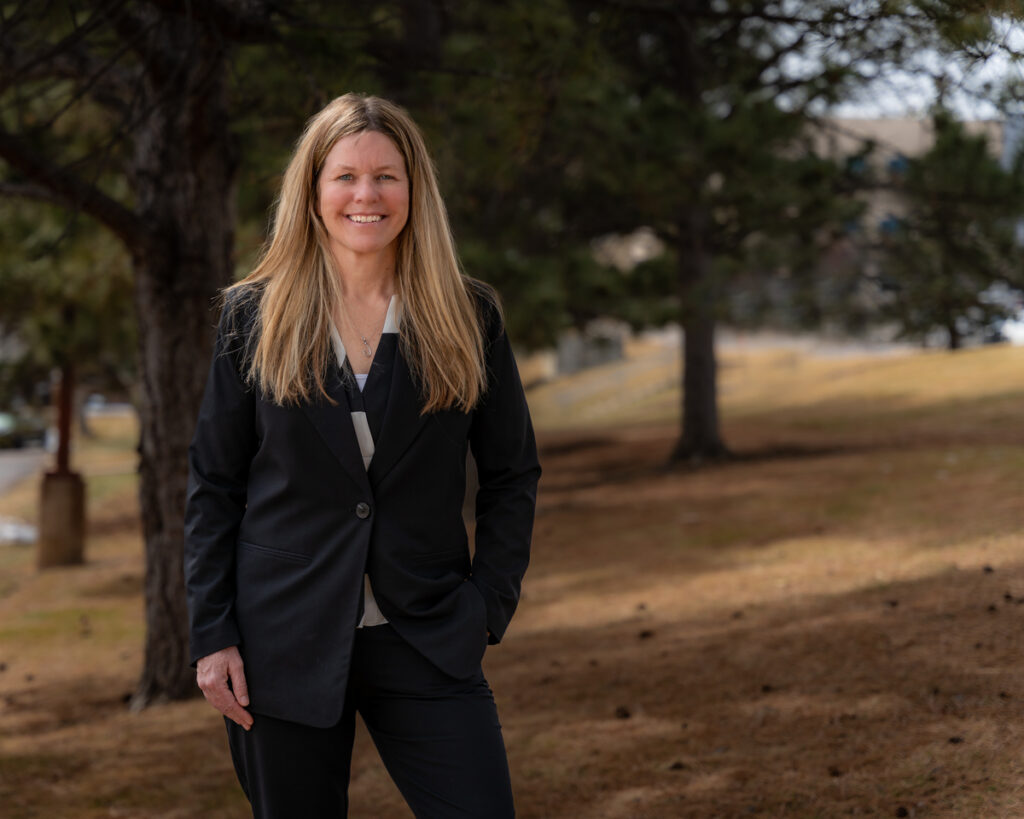

The challenges that come with excessive weight touch on every part of a person’s life and it is something many people struggle with every day. One study released in 2021 by the Centers for Disease Control and Prevention (CDC) found that almost 42 percent of Americans were living with obesity. That is nearly half of the population living with a condition that increases the risk of type 2 diabetes and heart disease. While maintaining a balanced diet and regular physical activity go a long way in helping people manage their weight and reduce the risk of serious diseases, sometimes it isn’t enough. Weight management is a complex issue with many factors to consider. Where diet and exercise work for some, others may need surgical intervention to reach and maintain a healthier weight.
Amy Seales, BSN, RN, CBN, at Monument Health Rapid City Clinic, 5th Street is the nursing supervisor for general surgery and the coordinator for the bariatric program. She has been working with the bariatrics program since 2019, and she herself struggled with weight management. She understands bariatric surgery from both the clinical standpoint and as a patient. At one point she weighed around 249 pounds and said her weight affected her ability to enjoy her life. She said, “I struggled with the activities of daily living, I was so tired all the time. Trying to do exercise and activities when your joints hurt from your own weight, it makes it hard to keep up.” For Amy, even things she enjoyed became a challenge. She continued, “Even with hiking, it was hard for me to find people to go with, or who could go as slowly as I needed. Everything was just harder.”
Amy’s breaking point came when she was on vacation with her husband in Glacier National Park in Montana. She said, “We were riding our motorcycles there and mine broke down. We wanted to go for a quick ride on my husband’s bike while they were fixing it. When I tried to get on the back he struggled to hold it with my added weight and I struggled to get on the bike at all. At that point I felt so embarrassed. I just knew I needed to make a change.”
Amy set up her first consultation when she got back, marking the beginning of her journey. She said, “Some people refer to bariatric surgery as weight loss surgery, but that is only one of the benefits. Things like high cholesterol, diabetes, hypertension and even sleep apnea can all improve after bariatric surgery.” She also noted that bariatric surgery is not the first or only option. It is only one tool of many available to health care providers when it comes to weight management. As with any surgery there is a process to make sure it’s the right option. “It’s about a six-month process beforehand where the doctor looks at a lot of things. They’ll identify problems with things like acid reflux or hernias, they’ll look for anything that needs to be taken care of before the surgery or to determine what kind of surgery is best in each case. You see a dietician and talk about medication before surgery. They even do a psychological evaluation.”
After the surgery, it took Amy time to recover and to adjust to the effects of her surgery. “I had my surgery Feb. 11, 2021 and I feel like that was the first day of the second half of my life. That first year, there were a lot of challenges like relearning how to eat,” Amy remembered. “You’re basically starting with a brand-new stomach almost like when a baby is born. You start out with liquids and see what you tolerate a bit at a time, and you may go back and forth. It all depends on the patient, but that whole time you’re also losing weight.”
“Amy has done really well after her surgery,” said David Fromm, M.D., who performed the procedure. “Honestly, the majority of our patients do very well. I think this is due, in part, to the multidisciplinary team approach. Our patients are thoroughly evaluated and treated prior to undergoing surgery. Bariatric surgery really becomes a life-changing event.”
After the surgery, Amy lost more than 100 pounds and once her body was able to adjust, Amy started to notice a huge difference. Her energy levels were going up and she found herself able to do a lot more. “There is a competition called ‘Tough Mudder’. It’s a 15k — or nine mile — course with around 25 obstacles. I made it my goal to do it,” Amy said. “I tried six months after my surgery, and it was really difficult. I hadn’t built up my stamina yet, but I tried again the following year and the difference was amazing! I was able to finish the race and I am looking forward to doing it again this summer.”
There are still things Amy is getting used to, but she says her life has dramatically changed for the better. “So much about our social lives revolves around eating and drinking, and you try to find new ways to go out with friends. Now I’m able to do so much more,” she continued. “I have so much more energy for things. My husband and I just took a trip to Vegas and If you’ve never been there, you walk a lot. I walked seven or eight miles, no problem, I wasn’t sore or out of breath or anything. It’s like I have a whole new life.” She sees bariatric surgery as one of the best decisions she’s ever made. “Anyone considering bariatric surgery, I would recommend calling and scheduling an appointment. It can be life changing.”
Monument Health offers Weight Management and Bariatrics in Rapid City and Spearfish.